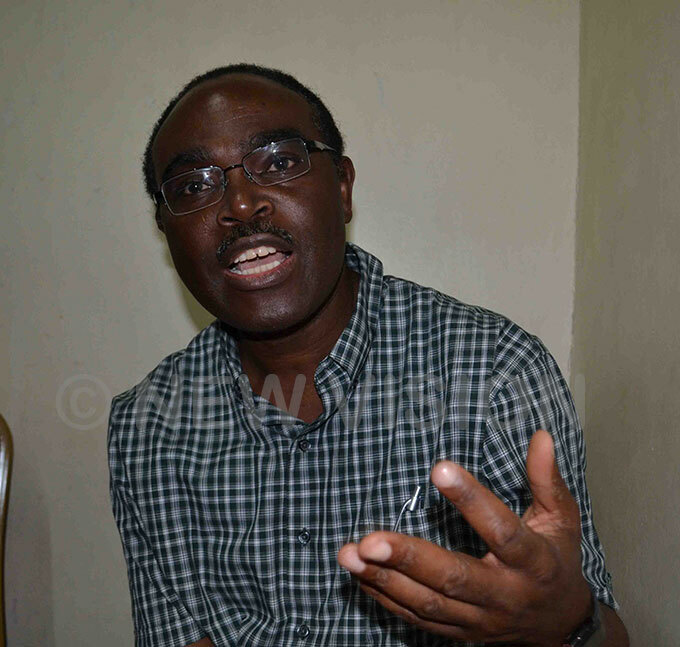Doctors call for Glaucoma awareness
Dr.Eritan Sogbesan a consultant Ophthalmologist-Gluacoma and anterior Segment in Sub-Saharan Africa (SSA) while at the eye clinic in Mulago National Referral Hospital revealed studies highlighted that 3.6% of Uganda’s population suffer from glaucoma.
HEALTH
Due to an increasing number of patients with glaucoma in the country, the eye specialists at Mulago National Referral Hospital have called for Glaucoma awareness.
During an interview with Dr.Jacob Ntende a Consultant Ophthalmologist at Mulago National Referral Hospital, he said the eye ward receives not less than 50 patients diagnosed with glaucoma on every glaucoma examination days.
He explained some patients turn up for review whereas others visit the clinic after starting to lose sight and when diagnosed they are found with glaucoma blindness.
He stated the disease is a slow killer, one loses sight slowly yet there is no cure. Adding there is a need for public health education on glaucoma blindness so that those with the disease are given medicine which will maintain the disease at the stage they will find it.
He, however, revealed that irrespective of the needfulness to curb glaucoma through diagnosis and management, the clinic needs new facilities and equipment since those available aren't enough and some are disturbing.
He further stated there are few ophthalmologists and support teams and limited treatment options (e.g., lasers and trabeculectomy with adjunctive antimetabolites).
He advised in order to reduce morbidity from glaucoma; a public health approach is needed for control and particularly targeted to those at risk.
 Dr.Eritan Sogbesan during an interview at Mulago National Referral Hospital
Dr.Eritan Sogbesan during an interview at Mulago National Referral Hospital
Dr.Eritan Sogbesan a consultant Ophthalmologist-Gluacoma and anterior Segment in Sub-Saharan Africa (SSA) while at the eye clinic in Mulago National Referral Hospital revealed studies highlighted that 3.6% of Uganda's population suffer from glaucoma.
He added gluacoma disease is a public health problem and predominantly open-angle glaucoma in Sub-Saharan Africa and worse still, it's the second cause of blindness.
Dr. Sogbesan put the blame on late diagnosis and poor response treatment possibly due to poor compliance or non-availability of any form of treatment, glaucoma has a high prevalence, early-onset and progress more rapidly than in Caucasians.
Dr. Sogbesan said, "There is some evidence that glaucoma has an earlier age of onset in blacks at 35 and has a more aggressive course.
In Africa, there are additional factors of poor access to care and less than optimal diagnosis and management. Social-economic deprivation exacerbates the situation, leading to a very late presentation. Indeed, in Africa, glaucoma has been referred to as the "silent thief of sight"'
He explained glaucoma patients visit the hospital when the disease is in its late state, worst when they are already blind. And so there is a need to create awareness to the public so that each person visits the eye clinic for examination at least once a year.
Dr.Eritan Sogbesan advised there is need for control through public health education for awareness about glaucoma; improve case-detection methods including opportunistic eye examinations; to encourage case-finding in first-degree relatives; to increase treatment options and availability of medications and surgery; to increase education and training for skilled glaucoma surgeons, patients' counselors and other glaucoma care workers; and to strengthen infrastructure of eye care centers and other systems for glaucoma diagnosis, treatment, and counseling of patients.
Adding these should be incorporated into existing Vision 2020 programs and blindness control strategies, and glaucoma care needs to be given high priority.
He recounted, despite the many challenges facing SSA, there is a need to streamline glaucoma control activities and provide evidence-based care.
The process to undertake such research can be scheduled systematically and tailored according to local needs and available pooled resources. In the longer term, the results and output of the research will be beneficial.